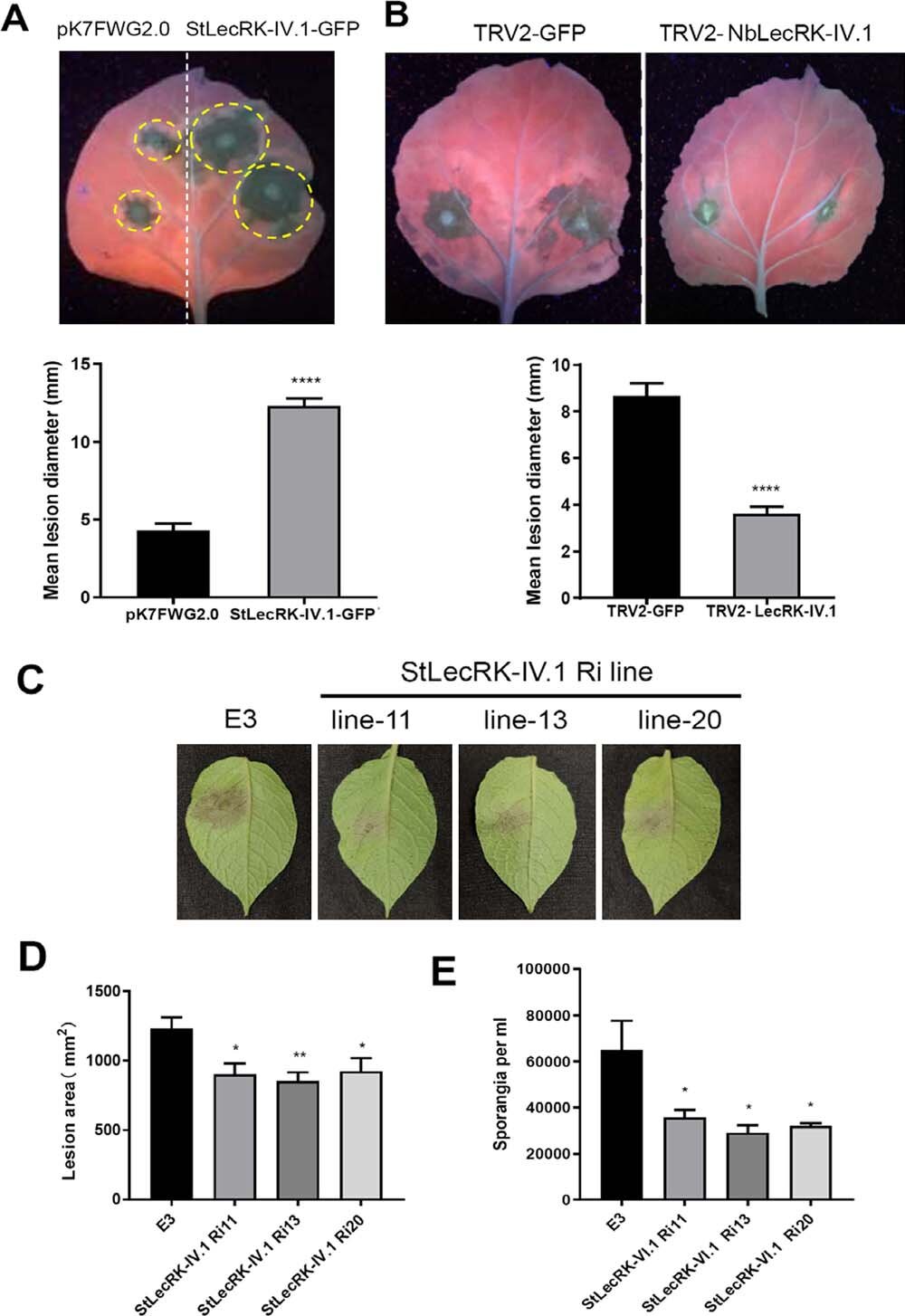In a paper recently published in the journal horticultural researchresearchers from Northeast Agricultural University and Huazhong Agricultural University characterized a negative regulator of late blight resistance in potatoes.
They showed that a potato LecRLK, StLecRK-IV.1, is involved in plant immunity to P. infestans by serving as a negative regulator. Transient expression of StLecRK-IV.1 in Nicotiana benthamiana significantly enhanced leaf colonization by P. infestans. In contrast, the size of disease lesions caused by P. infestans was reduced by virus-induced gene silencing of the StLecRK-IV.1 ortholog in N. benthamiana as well as in potato plants with StLecRK-IV.1 stable RNA interference. StLecRK-IV.1 expression was downregulated by P. infestans and activated by abscisic acid.
Tetraspanins, belonging to the transmembrane 4 superfamily (TM4SF), are integral membrane components for endosome organization and are widespread in mammals, insects, fungi, mosses, and higher plants. There are 17 tetraspanin (TET)-like genes in the Arabidopsis genome, of which TET8 and TET9 are mammalian CD63 orthologs. The Arabidopsis tet8 mutant shows reduced formation of extracellular vesicles (EVs) accompanied by an impaired burst of reactive oxygen species (ROS) in response to stressors, suggesting a role for TET8 in EV formation. Like CD63 in mammals, TET8 is considered a specific marker for exosomes in plants, and TET8-associated EVs can be considered as plant exosomes. Botrytis cinerea induces TET8- and TET9-associated vesicle accumulation at the sites of infection, and TET8- and TET9-associated exosomes contribute to plant immunity against B. cinerea infection by delivering small host RNAs (sRNAs) into fungal cells, where they carry the Suppress pathogenicity targeting virulence genes.
In this study, researchers used a membrane yeast two-hybrid system to show that tetraspanin-8 (StTET8) interacted with StLecRK-IV.1 and this result was further supported by co-immunoprecipitation, a luciferase complementation assay and a bimolecular fluorescence verified supplemental test. StTET8 is a positive immunoregulator that limits infection with P. infestans. Co-expression of StLecRK-IV.1 with StTET8 antagonized the positive role of StTET8 against P. infestans. Furthermore, co-expression of StTET8 with StLecRK-IV.1 affected the stability of StTET8, a result confirmed by a Western blot assay and a confocal assay.
“Our evidence showed that a potato StLecRK-IV.1 negatively regulates late blight resistance by interacting with and affecting the protein stability of a positive regulator, StTET8,” the authors said. “This work provides a novel interaction mechanism of how a plant LecRLK regulates plant immunity.”
Eco-friendly method shows promise in combating devastating potato disease
Lei Guo et al, Potato StLecRK-IV.1 negatively regulates late blight resistance by affecting the stability of a positive regulator StTET8, horticultural research (2022). DOI: 10.1093/hr/uhac010
Provided by Nanjing Agricultural University The Academy of Science
Citation: Scientists characterize the potato L-type lectin StLecRK-IV.1, which negatively regulates late blight resistance (2022 August 5), retrieved August 5, 2022 from https://phys.org/news/2022 -08-scientists-characterize-potato L-type lectin.html
This document is protected by copyright. Except for fair trade for the purpose of private study or research, no part may be reproduced without written permission. The content is for informational purposes only.
#Scientists #characterize #potato #Ltype #lectin #StLecRKIV.1 #negatively #regulates #late #blight #resistance


Leave a Comment